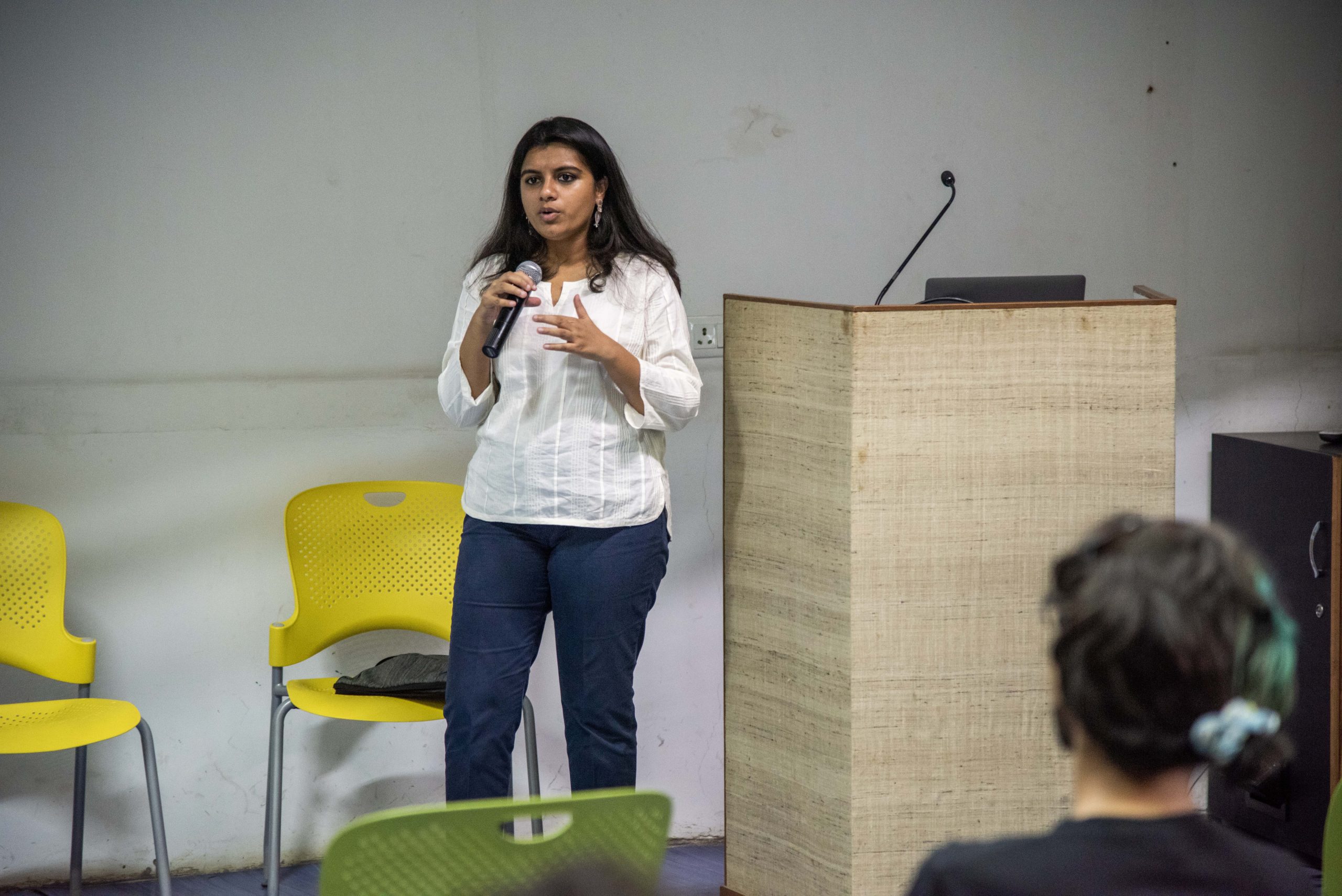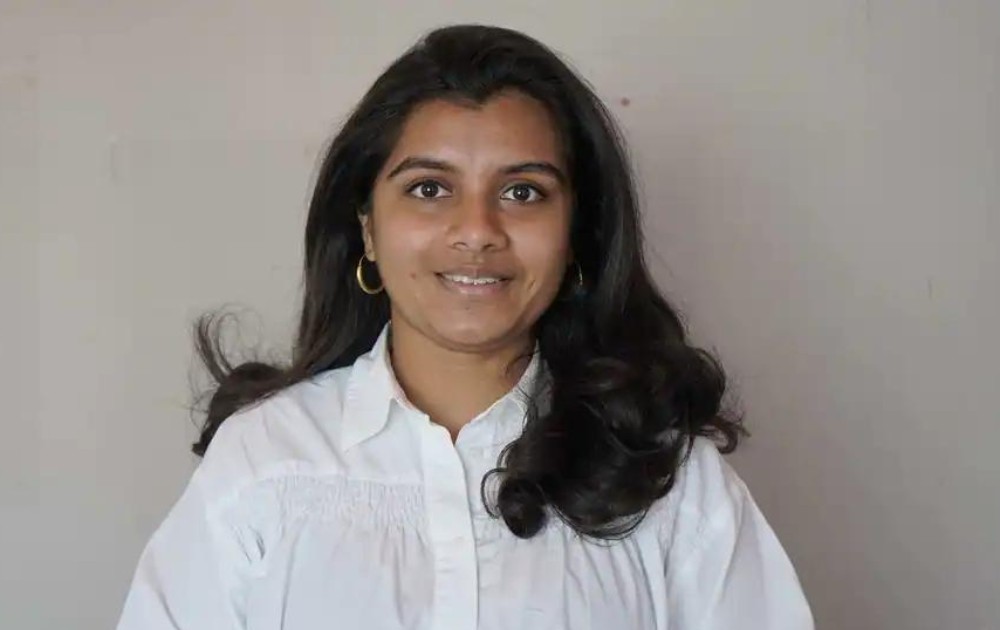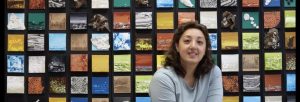(June 24, 2023) Vishnupriya Rajgarhia is an accomplished independent consultant with expertise in art, culture, and education, at the intersection of arts and policy. She is the only South-Asian Research Fellow to represent the British Pavilion at the 58th Venice Biennale. She was also nominated and selected for the Forbes 30 under 30 Asia recognition in Arts. Her notable project, FreeTrade Museums, the world’s first live museum focusing on intangible cultural heritage, has gained acclaim. Vishnupriya’s work has been exhibited internationally and she has received awards for her contributions to the field. Now an independent consultant with core expertise in art, culture and education, Vishnupriya lives and works between India and the United Kingdom.

Vishnupriya Rajgarhia
By the time she turned 13, Vishnupriya Rajgarhia had won national and international awards for her art. She had started even earlier, seeing art as a hobby, but by the time she entered her teens, it was clear that the hobby had potential.
Growing up in a joint family in Delhi, Vishnupriya Rajgarhia’s interest in the arts was nurtured from a very young age. She learned Kathak and Bharatnatyam, apart from being a talented painter and calligrapher. “Summer at my nana-nani’s home meant being enrolled in classes,” she smiles, during her interview with Global Indian. “I always had a pronounced sense of self, I knew what I liked and what I didn’t like. I was a shy child, sharp and was either on my sitting on my grandfather’s lap, or immersed in books! Music and the arts offer a sense of flow, they help you disappear while working on something,” she remarks.
In hindsight, as Vishnupriya looks back at her formative years, “the more I stand surprised,” she admits. “I distinctly remember being asked what I wanted to be, when I was about 7-8 years old. I said M.F. Husain, although I knew nothing more about him other than the fact that he was an artist, which I had seen in a newspaper.” She drew and she painted, winning every competition she entered and when school was tough, she found safety and refuge in her creative passion. “My family really encouraged me to pursue art beyond a hobby. My grandfather celebrated every medal I won as if it was the Padma Shri,” she smiles.
Off to Oxford University
In those days, “the condition of art schools in India wasn’t very promising,” Vishnupriya says. So, she chose something more staid, a Bachelor’s in political science and history at Lady Shri Ram College for Women.” After graduating, she had her heart set on a Master’s in Fine Arts and aiming high, applied at Oxford University, even if she didn’t really believe she stood a chance without a B.F.A. “I had studied political science and history and as an artist, was mostly self-taught and informally trained. But I got in with a scholarship! I was also the only Indian to be accepted to the program in its history.”
Vishnupriya arrived at the University of Oxford as a Levett Scholar. Even there, the going wasn’t always smooth. By this time, she had experimented widely, working on her first exhibition with diptychs, and suspensions, methods that were largely unexplored in India. She always wanted to break the mould, which went on to set the tone for her artistic practice. At Oxford, she began exploring the intersection of art and policy. However, at University, she found that while her ideas didn’t receive popular support, they did, however, receive critical appreciation from her tutors.

The artist in Venice
Soon after she received her MFA at Lady Margaret Hall, Vishnupriya travelled to Venice, where her research on FreeTrade Museums resulted in her selection as a Research Fellow with the 58th Venice Biennale. She was the only South Asian representing the British Pavilion. “We conducted on ground research while participating in curated workshops and experiences; it was the experience of a lifetime,” she recalls. The focus was still on art as a soft power to improve relationships between countries.
Vishnupriya’s most notable work is FreeTrade Museums, the world’s first live museum focussing on intangible cultural heritage, which gained international acclaim. It also earned her a spot in the 2023 Forbes 30 Under 30 Asia list in the Arts category. “It has been the toughest project I have delivered, but one that was the most fulfilling. I hope this creates more awareness about the project, as we scale,” Vishnupriya says.
In academia
During the pandemic, Vishnupriya worked as a Research Assistant for the University of Oxford’s Changing Character of War centre, where she analysed changes in confict usual visual art techniques. She also worked with the Indian Ambassador to the United States as a research and teaching assistant.
She has led an eventful life in academia, working as an Assistant Professor and Visiting Faculty in serveral different universities. One of her interests is the future of work, and she has developed courses on skills like creative thinking, which she believes will be essential for meaningful impact in the 21st century.
“I worked as a Graduate Tutor at Oxford and soon after, had the chance to be Visiting Faculty at Ashoka University,” Vishnupriya says. “I realised how nourishing this experience was for me, it helped me reconnect with a discipline I was so passionate about at a fundamental level.”
After that, she was invited to join Anant National University in Ahmedabad, at the age of 26, as an assistant professor in the School of Design. “It allowed me to gain an in-depth view of what academics was all about, as well as key themes and issues surrounding it,” Vishnupriya says. She quit that job in February 2023 and is presently a Consultant for India’s G20 Presidency, alongside setting up her individual cultural consultance practice.

Where she works
Although she is given to shuttling between cities – and countries, Vishnupriya’s workspaces are always dynamic. One thing remains, however: she always sits facing a blank wall. “In all my workspaces, I have always kept a place (a huge whiteboard, lots of post-its) to put up questions, make to-do lists and write down thoughts I would like to return to later,” she says.
Balancing roles
It’s nearly impossible, Vishnupriya says, to juggle a full-time role and be an artist. Dedicating time consistently to one’s practice is crucial, after all. “It’s important to find a role that honours the need of your primary profession. Working as a visiting faculty member permits me that freedom and nourshment, both,” she says.
How does her academic career influence her creativity? “My academic background is varied in terms of subject-matter focus,” says Vishnupriya. “However, it helps me think critically, and beyond curated boundaries. It definitely pushes me to connect the dots between disciplines, and it shows in my projects.”




